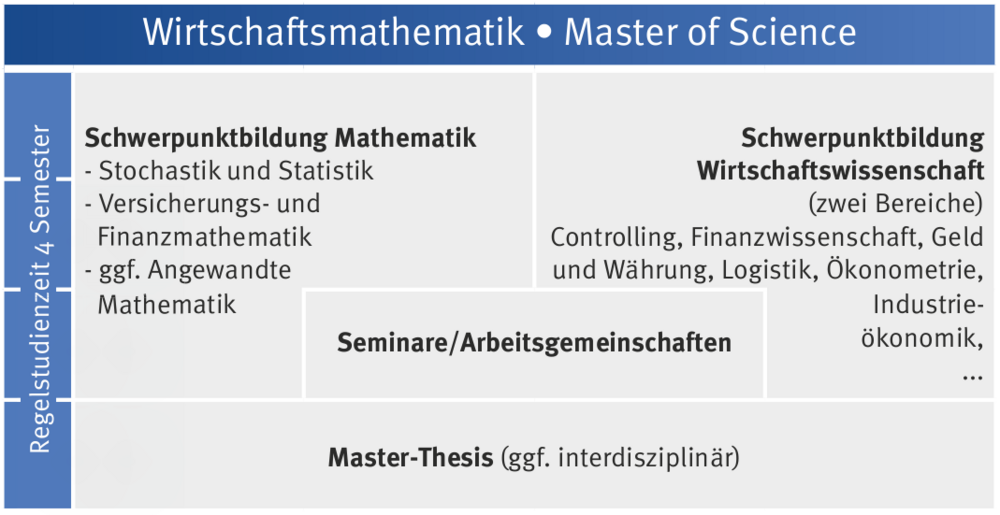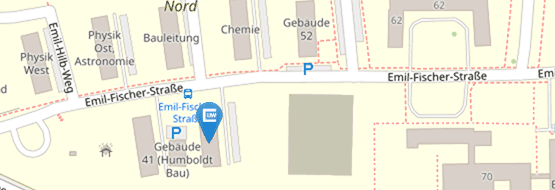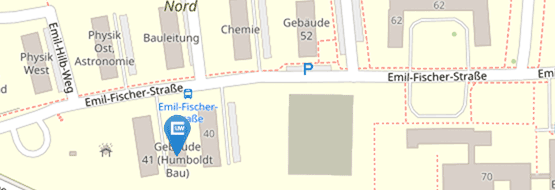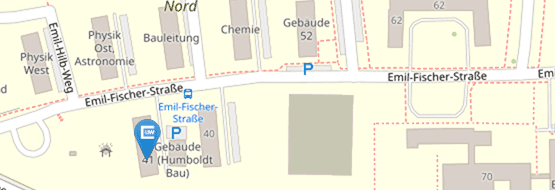Economathematics (Master)
Master's program in Economathematics
| Degree: | Master of Science |
| Target duration: | 4 Semester |
| Start: | summer and winter semester |
| Admission: | Free admission, but subject-specific admission requirements |
| Credits: | 120 ECTS points |
| Target group: | successful graduates of a Bachelor's degree program with a focus on economathematics or mathematics |
| Qualification targets: | Qualification targets Master Economathematics (120 ECTS) |
| Accreditation: | program accredited till September 30, 2028 |

The following content-related requirements are set for the master's degree in Economathematics at the University of Würzburg:
- degree in a bachelor's program (with 180 ECTS credits) in Economathematics, mathematics with an applied subject in economics, or a comparable study program,
- competences amounting to at least 50 ECTS credits in the following areas of mathematics: calculus (differential and integral calculus in one and more variables), ordinary differential equations, partial differential equations, vector analysis, function theory, linear algebra, algebra, number theory, geometry, discrete mathematics, Functional Analysis, Numerical Mathematics, Stochastics, Financial Mathematics, Operations Research, Optimization, Modeling, Scientific Computing,
- Competences amounting to at least 20 ECTS points from other modules in any subfield of mathematics, computer science and economics,
- a thesis with a minimum of 10 ECTS credits covering a subject of mathematics, economics or computer science. Otherwise, in the case of an interdisciplinary dissertation, the thesis should have covered a subject in which explicit methods of mathematics or economics are considered.
In order to insure an uninterrupted transition from the Bachelor's to the Master's degree program, a "conditional" admission can be applied for, provided that you already completed at least 150 ECTS in the program mentioned in 1. and a written thesis is planned for the conclusion of that degree program. The requirements mentioned in 2. and 3. must be met in any case. For the final admission to the Master's degree program in Economathematics, the requirements listed in 1 and 4 must be submitted by the end of the registration deadline of the third semester.
There are two deadlines to consider:
- Until July 15. (if applying for the winter semester) or until January 15 (if applying for the summer semester), an online application must be submitted under WueStudy. JMU students can use their JMU account, external applicants must first register for an applicant account. (Since December 9, 2021, the online application will no longer be made on the JMU Master's portal.)
- Until September 15 (if applying for the winter semester) or until March 15 (if applying for the summer semester), proof of first degree or proof of performance can be submitted.
Attention: the deadline of July 15 and January 15, respectively, is an exclusion period, i.e. an application for the respective semester after the deadline is no longer possible. On the other hand, documents can be submitted until the second deadline.
After receiving your online application on the Master-Portal, we will contact you by e-mail and let you know the status of your application.
Structure
- The final selection of economics focuses will take place at the end of the third semester.
- The fourth semester should be mainly left for the Master's thesis.
Graduation
If you have earned 120 ECTS credits under the examination regulations, you will receive the academic degree of Master of Science.
Study and Examination Regulations
- general study and examination regulations for Bachelor and Master courses (ASPO)
- subject specific provisions for the Master's program in Economathematics (PO 2022)
The examination board is responsible for
- recognition questions at the beginning of studies, questions regarding the achievements in previous study programs or at another study location,
- recognition questions in the current study
- gender equality
The elective area of mathematics is divided into three subsections:
- Stochastic und Statistics (10 to 30 ECTS)
- Industrial Statistics 1+2 (10 ECTS each)
- Statistical Analysis (10 ECTS)
- Stochastical Processes (10 ECTS)
- Time Series Analysis 1+2 (10 ECTS each)
- Financial and Insurance Mathematics (10 to 30 ECTS)
- Selected Topics in Financial Mathematics (10 ECTS)
- Stochastic Models of Risk Management (10 ECTS)
- Insurance Mathematics 1+2 (10 ECTS each)
- Applied Mathematics (0 to 20 ECTS, see module catalogue)
A total of 40 ECTS must be collected, at least 10 from each of the first two areas. The third area is optional.
The economics section is divided into two so-called focuses, each worth 20 ECTS. You can choose the two focuses according to your preference from a list of currently 18 options. You need then to inform the examination office of this decision by the end of the third semester.
Each focus contains both compulsory and elective modules. Conversely, individual modules are often included in different focuses. The details can be found in the module catalogue or in the course advisory service.
You have to take one or two seminars (mathematics or economy) or participate in one workshop (only mathematics; they are called "Research in Groups" and typically are a mix between lecture and seminar) for a total of 10 ECTS. The list of all options can be found in the module catalogue.
The Master's Thesis (MAT, 30 ECTS) takes up a significantly larger part of your studies. The processing time of your thesis should be at least six months, that is a whole semester.
The topic search process is similar to the one of the Bachelor program. More precisely, on the one hand you can find advertised topic suggestions on the other you can directly contact a lecturer. Often the topics for a master's thesis are selected after a seminar or a workshop. For economics, there is again a central allocation with application deadlines.
If you have found a supervisor and a topic for your MAT, print out this form, fill it out together with your supervisor and give it to Ms Schmid (Mathematik Ost, Zi. 00.016). This will make the topic of your MAT and the date of submission (date of issue of the subject + 6 months) official and binding.
Only in well justified cases (incapacity for examination, with attest!) The processing time can be extended upon application to the examination board and in consultation with the supervisor.
For regulations concerning passing the thesis to the university see here.






